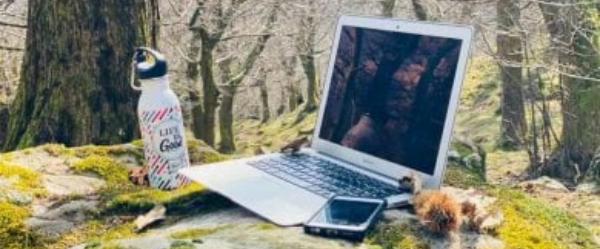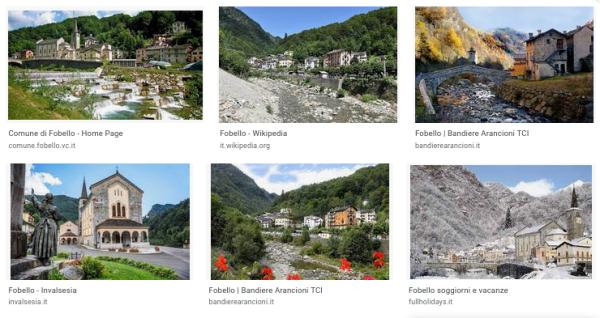Again on the dangers of coworking coming soon to a mountain village near you
Bandwidth and unintended consequences included.

One year ago, I published here a critique of a short report about italian mountain villages setting up digital coworking centers, to attract white collars tired of noisy, dirty and too expensive cities:
"[In rural Piedmont] villages with just a few scores of residents are setting up office spaces and broadband connectivity, to allow visitors from big cities to stay for more than weekends, matching relax and work."
“This is a trend that in the long term may slow down the depopulation of mountain areas."
After one more year of pandemic and promises of the same type, I feel compelled to go back to that argument, and expand/update it.
Back to Fobello

Last year Fobello, the 192 residents village in Valsesia shown in the screenshot above, had “just joined this new frontier of tourist marketing: “a german lady who owns a second home here just subscribed to our new coworking space, but I am sure others will follow”, the Fobello major told Repubblica in 2021.
This is good. And may be bad too
Many areas in the mountains are spontaneously rewilding, but in ways that, because they are too slow if nothing else, make them dangerous for nearby populations. To make just two of many examples, if terraced fields built over centuries are abandoned in just a few years, they may cause landslides. Woods where nobody picks up firewood, or cuts a few trees, can cause really dangerous fires.
With such perspectives, if some thousands urbanites freely make house prices in Rome, Milan, Naples… a bit more affordable, by leaving to stimulate service jobs, forestry and landscaping included, in what otherwise would be high-altitude deserts it’s a good thing, really.
IF…
- they (we) don’t expect to bring uphill all their lifestyles, nevroses and hobbies (e.g. downhill skiing, which seems too doomed anyway to keep alive)
- adapt to the new environments, instead of making them one more giant NON-PLACE, whose only novelty would be to be scattered all across the Alps or Apennines
Not a new problem, of course. The “Information Superhighway as Environmental Menace said in 1995 that:
“Unbeknownst to the advocates of telecommuting, the coming information superhighway portends an environmental disaster of the first magnitude”
Personally, the first time I shared certain concerns is in this 2011 post (Italian only, sorry) where I wrote, among other things:
“Many villages are beautiful, with fine air, etc. only and EXACTLY because they are very small, with very few residents and above all WITHOUT the bandwidth that many bumpkin city yuppies absolutely need to do their jobs."
“Broadband in villages must be brought anyway, but not for us aspiring fugitives from the city. It must come for those who have always lived there and do not work “online”, but want to continue to leave a decent life there, without wasting money. Today even the small goat farmer needs, in order to stay in his village, to be able to sell his organic cheeses and file tax returns online. Broadband must come for him."
Who writes this, why, and how to help
I am Marco Fioretti, tech writer and aspiring polymath doing human-digital research and popularization.
I do it because YOUR civil rights and the quality of YOUR life depend every year more on how software is used AROUND you.
To this end, I have already shared more than a million words on this blog, without any paywall or user tracking, and am sharing the next million through a newsletter, also without any paywall.
The more direct support I get, the more I can continue to inform for free parents, teachers, decision makers, and everybody else who should know more stuff like this. You can support me with paid subscriptions to my newsletter, donations via PayPal (mfioretti@nexaima.net) or LiberaPay, or in any of the other ways listed here.THANKS for your support!